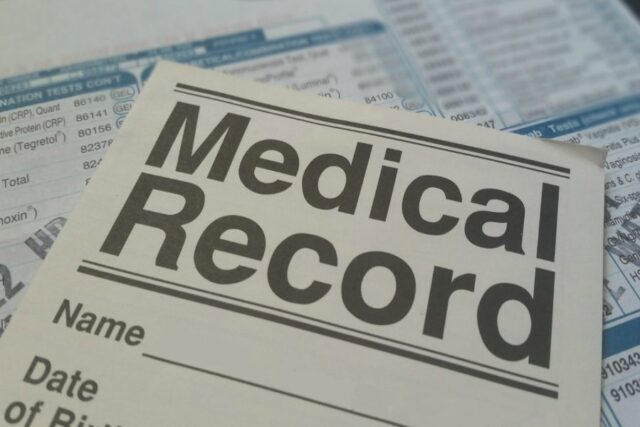If you are injured in a motor vehicle accident, on someone else’s property, from surgery gone wrong, or another type of personal injury, medical documentation is of extreme importance. The whole point of a personal injury case is to recover compensation for your damages to make you whole again.
In order to prove that the other party was negligent and liable for your damages, you need to prove that you were injured. The documentation of your injuries, the medical treatments you received, and the future outlook of your recovery all play a vital role in your case.
Without this documentation, it can be exceedingly difficult to prove the full extent of your injuries. It will also be hard to show just how these injuries impact your life.
What Does Medical Documentation Establish in a Personal Injury Case?
After any kind of accident that is caused by the negligence or inaction of another person or entity, you should seek immediate medical treatment. It may seem obvious that someone who is injured should either go to the emergency room or a doctor as soon as possible. However, many injury victims decline treatment, only to discover hours or days later that they have internal injuries.
Even if you think you’re fine after your accident, you should see medical professionals for an evaluation. This will document your injuries and provide important evidence for your case.
The Extent of Your Injuries
Your medical records will have detailed information about the injuries you sustained. It will list all the symptoms you have experienced and the treatments you have received. This shows the severity of your injuries and how they have impacted your life.
Injury Causes
Your medical records will also show the cause of your injuries, establishing this information as fact. If you had a head injury from hitting your head on the steering wheel in a car accident, the medical records will detail this as well as the extent of how this head injury has affected you.
Required Medical Treatment
Your medical records can detail the treatment used in your treatment, which could be surgery, physical therapy, medication, or another medical treatment. Your records will also reveal if you are required to see specialists to help you recover. With all these treatments, you can expect that the cost of your medical bills will be high. This documentation shows your need for compensation to manage the costs.
Impact of Injuries on Your Life
With your medical records, you have doctors attesting to the impact the injuries have on your life. The doctors may advise that you not return to work until you are fully recovered, which can show the need for recovering lost wages in your personal injury case. These records can also show the degree of your pain and suffering or any other hindrance these injuries have caused.
As you can see, medical documentation is essential in a personal injury claim because it is proof of your injuries and how they have turned your life upside down. Without this evidence, your claim could be drastically reduced, or you may wind up getting nothing at all.
Tips for Acquiring Medical Documentation
To ensure your medical records can help you after a personal injury accident, you should follow these tips:
Do Not Wait to Get Medical Attention
If someone else caused you to be hurt in an accident, don’t let your first thought be about not having medical insurance or not being able to pay. You should always prioritize your health. You do not need to have visible, bleeding wounds to be injured. Many injuries are internal, like traumatic brain injuries or internal bleeding, and not seeking treatment could be life-threatening.
It’s always best to take care of your health after you’ve been in a personal injury accident. However, waiting to get medical attention can make it harder to prove that your injuries were sustained in the accident. The insurance company may deny a payout because they can argue your injuries happened after the accident, or that they aren’t as serious as you claim.
Always Be Honest with Medical Practitioners
Never try to shrug off how you feel, even if you think it’s nothing major. Always tell the doctors that treat you the truth about how you feel. A symptom that may seem minor may be an indicator that something is seriously wrong. Tell the doctors everything so that they can accurately provide medical treatment and document it.
Keep Your Medical Records Organized
If you’re filing a personal injury claim, you must keep records of every medical treatment you receive. Be diligent in recording the name of the hospital or medical practice, along with all the doctors who treated you. Keep records of your medications and receipts for everything that you have paid for or been billed for thus far.
Obey the Doctor’s Orders
One mistake that many personal injury victims make is not following up with appointments that the doctors recommend. If the doctor wants to see you to follow up or they have advised you to see a specialist, make sure you do it. When you ignore medical advice, it can lead to the worsening of your injuries. It can also be used against you in court since a judge or jury will believe that any reasonable person who has suffered serious injuries would continue the necessary care advised by medical professionals.
Make Sure You Have an Attorney for Your Personal Injury Case
Medical documentation is one of the most important pieces of evidence for any personal injury claim because it provides a record of your injuries. This record further shows the treatments necessary to help you heal and the prognosis for how the injuries will affect your life.
You may heal from your injuries, or you may need ongoing medical care for the rest of your life. Regardless, consult with an injury lawyer to calculate the extent of your damages and pursue the compensation you deserve.














